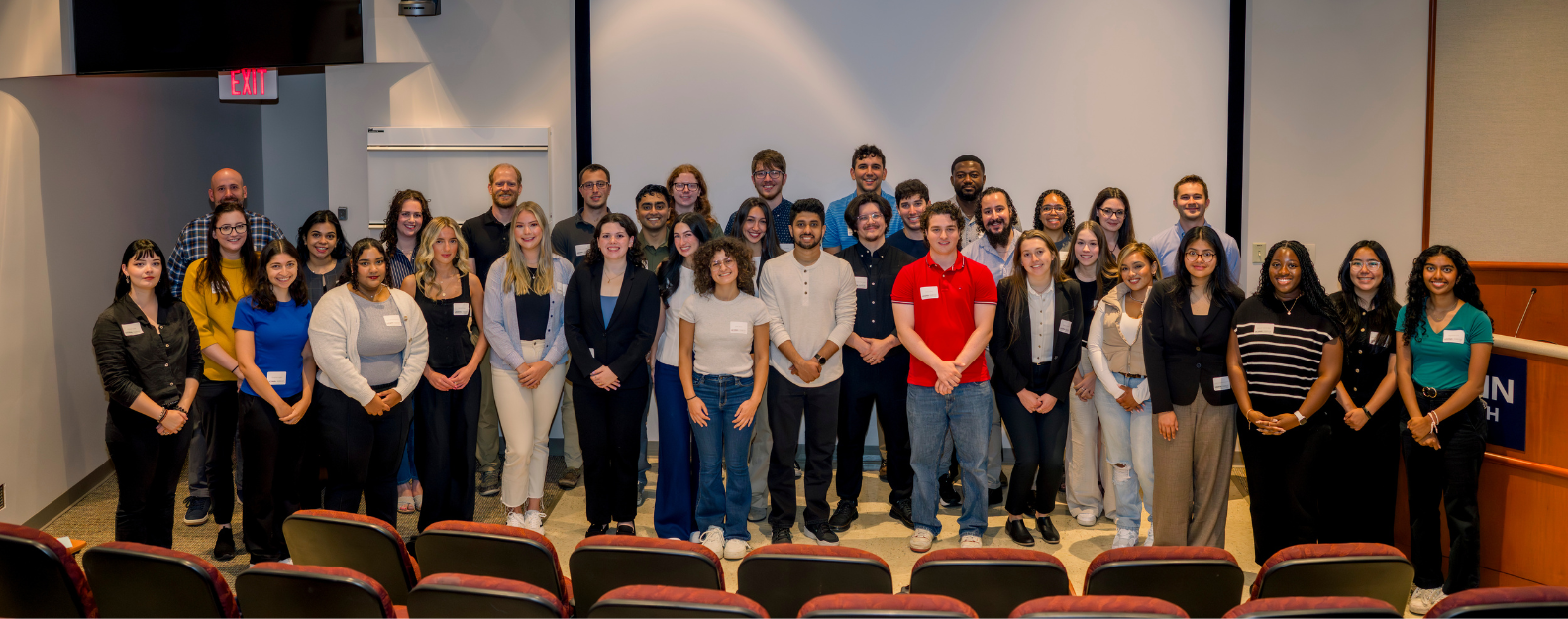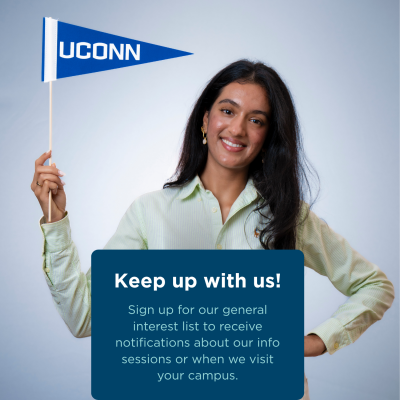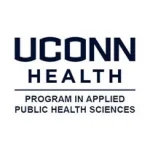
UConn MPH Prepared Me for This—Here’s How | Mayra’s Journey

What people don’t see about homelessness in Hartford.
Community Service Officer Jim Barrett shares what’s really driving the rise in homelessness — from housing instability to barriers in accessing care. Homelessness isn’t just about shelter. It’s about health, safety, and survival.
This is a public health issue.
Watch the full conversation on YouTube: https://shorturl.at/Ed217
or visit the link in our bio.
Thanks again to the @hartfordctpolice
🔔 Subscribe for more conversations on public health, community engagement, and local impact.
-
#HartfordCT #Homelessness #PublicHealth #CommunityOutreach #SocialDeterminantsOfHealth #HousingIsHealth #HartfordPolice

What people don’t see about homelessness in Hartford.
Community Service Officer Jim Barrett shares what’s really driving the rise in homelessness — from housing instability to barriers in accessing care. Homelessness isn’t just about shelter. It’s about health, safety, and survival.
This is a public health issue.
Watch the full conversation on YouTube: https://shorturl.at/Ed217
or visit the link in our bio.
Thanks again to the @hartfordctpolice
🔔 Subscribe for more conversations on public health, community engagement, and local impact.
-
#HartfordCT #Homelessness #PublicHealth #CommunityOutreach #SocialDeterminantsOfHealth #HousingIsHealth #HartfordPolice
...

UConn Hartford
Thursday, February 19, 2026
12:30 – 1:45 PM
HTB 216
Panelists:
Dr. Shayna Cunningham – Public Health Sciences
Dr. Amy Hunter – Public Health Sciences
This session will highlight interdisciplinary public health work and how research, education, and policy intersect to improve population health. Snacks and drinks provided
-
Register for this session: https://shorturl.at/MU53J
Or sign up in our bio
-
#101Session #PublicHealth #FreeEvent #ForStudents #UConn

UConn Hartford
Thursday, February 19, 2026
12:30 – 1:45 PM
HTB 216
Panelists:
Dr. Shayna Cunningham – Public Health Sciences
Dr. Amy Hunter – Public Health Sciences
This session will highlight interdisciplinary public health work and how research, education, and policy intersect to improve population health. Snacks and drinks provided
-
Register for this session: https://shorturl.at/MU53J
Or sign up in our bio
-
#101Session #PublicHealth #FreeEvent #ForStudents #UConn
...

Our Public Health 101 session at UConn Waterbury was a success!
Our panelists provided insightful answers about how they empower their communities, while our Graduate Assistants shared their thoughts on why they chose public health and what distinguishes our program.
-
Thanks again to Dr. Bermudez, Dr. Restrepo Ruiz, and Dr. McSorley.
-
If you missed Waterbury`s session we have another happening next week at UConn Hartford.
Thursday, February 19, 2026
12:30 – 1:45 PM
HTB 216
Panelists:
Dr. Shayna Cunningham – Public Health Sciences
Dr. Amy Hunter – Public Health Sciences
This session will highlight interdisciplinary public health work and how research, education, and policy intersect to improve population health.
Register for that session here: https://shorturl.at/MMrff or in our bio
-
#101Session #PublicHealth #FreeEvent #ForStudents #UConn

Our Public Health 101 session at UConn Waterbury was a success!
Our panelists provided insightful answers about how they empower their communities, while our Graduate Assistants shared their thoughts on why they chose public health and what distinguishes our program.
-
Thanks again to Dr. Bermudez, Dr. Restrepo Ruiz, and Dr. McSorley.
-
If you missed Waterbury`s session we have another happening next week at UConn Hartford.
Thursday, February 19, 2026
12:30 – 1:45 PM
HTB 216
Panelists:
Dr. Shayna Cunningham – Public Health Sciences
Dr. Amy Hunter – Public Health Sciences
This session will highlight interdisciplinary public health work and how research, education, and policy intersect to improve population health.
Register for that session here: https://shorturl.at/MMrff or in our bio
-
#101Session #PublicHealth #FreeEvent #ForStudents #UConn
...

Rooted in Health Cookbook, From Garden to Table
Welcome to a space where public health takes root. Our new garden-to-table recipe booklet celebrates what we plant, nurture, and share as a community committed to health and well-being.
Created by the UConn Department of Public Health Sciences, this collection features faculty-contributed recipes inspired by the seeds we’re distributing—cucumbers, peppers, tomatoes, and herbs—and the work we do every day to build healthier communities.
Why it matters: Home gardening is more than a hobby—it’s a public health practice. It supports physical activity, reduces stress, improves access to fresh food, and strengthens food security and community resilience.
This is a sneak peek, see below to get a copy to see all of our recipes!
📖 Stop by our tabling events or our office to pick up a printed copy.
📩 Questions? Email us at publichealth@uchc.edu
Please note: This booklet features select faculty who contributed recipes.
-
#Cookbook #UConn #PublicHealth #HomeGardening

Rooted in Health Cookbook, From Garden to Table
Welcome to a space where public health takes root. Our new garden-to-table recipe booklet celebrates what we plant, nurture, and share as a community committed to health and well-being.
Created by the UConn Department of Public Health Sciences, this collection features faculty-contributed recipes inspired by the seeds we’re distributing—cucumbers, peppers, tomatoes, and herbs—and the work we do every day to build healthier communities.
Why it matters: Home gardening is more than a hobby—it’s a public health practice. It supports physical activity, reduces stress, improves access to fresh food, and strengthens food security and community resilience.
This is a sneak peek, see below to get a copy to see all of our recipes!
📖 Stop by our tabling events or our office to pick up a printed copy.
📩 Questions? Email us at publichealth@uchc.edu
Please note: This booklet features select faculty who contributed recipes.
-
#Cookbook #UConn #PublicHealth #HomeGardening
...

Every Field Has a Public Health Connection.
Designers influence how health information is seen. Engineers build safer spaces. Educators inspire healthy habits. Whatever your path, aligning your career with public health means using your expertise to make a tangible difference in people’s lives.
Our program creates impact within the community. Join our degree programs to become part of a vibrant community of students, alumni, educators, and local partners, all committed to enhancing public health systems and services in Connecticut.
-
Click on the link in our bio to learn more
-
#PublicHealth #Careers #MPH #UConn

Every Field Has a Public Health Connection.
Designers influence how health information is seen. Engineers build safer spaces. Educators inspire healthy habits. Whatever your path, aligning your career with public health means using your expertise to make a tangible difference in people’s lives.
Our program creates impact within the community. Join our degree programs to become part of a vibrant community of students, alumni, educators, and local partners, all committed to enhancing public health systems and services in Connecticut.
-
Click on the link in our bio to learn more
-
#PublicHealth #Careers #MPH #UConn
...

☝️What is FastTrack?
The UConn Master of Public Health (MPH) program offers a FastTrack option, with a concentration on Interprofessional Public Health Practice, for qualified UConn undergraduate students that enables them to complete a portion of the MPH degree while still undergraduates. While enrolled in any UConn-approved B.A. or B.S. degree program, you will be able to complete a series of 4 required MPH courses and those 12 credits will be applied to both your undergraduate and graduate plans of study.
🤔Why choose FastTrack?
FastTrack students earn their MPH in roughly half the time and at two-thirds the cost of those who start after graduation. Become part of a nationally-accredited graduate program recognized for its innovative curriculum, and join more than 1,000 UConn MPH graduates making significant contributions to local, national, and international health.
Through the FastTrack program, you`ll gain knowledge and experience in:
- Social and environmental determinants of health
- Techniques for collecting and analyzing data to improve the health of communities
- Designing and evaluating of interventions to reduce risks and promote health within communities
- Advocacy for and with communities on social policies to enhance community well-being
- Support of health partners and other stakeholders tackling complex health concerns
Apply at https://mph.uconn.edu or link in our bio!
-
#FastTrack #UConnMPH #PublicHealth #CollegeSavings

☝️What is FastTrack?
The UConn Master of Public Health (MPH) program offers a FastTrack option, with a concentration on Interprofessional Public Health Practice, for qualified UConn undergraduate students that enables them to complete a portion of the MPH degree while still undergraduates. While enrolled in any UConn-approved B.A. or B.S. degree program, you will be able to complete a series of 4 required MPH courses and those 12 credits will be applied to both your undergraduate and graduate plans of study.
🤔Why choose FastTrack?
FastTrack students earn their MPH in roughly half the time and at two-thirds the cost of those who start after graduation. Become part of a nationally-accredited graduate program recognized for its innovative curriculum, and join more than 1,000 UConn MPH graduates making significant contributions to local, national, and international health.
Through the FastTrack program, you`ll gain knowledge and experience in:
- Social and environmental determinants of health
- Techniques for collecting and analyzing data to improve the health of communities
- Designing and evaluating of interventions to reduce risks and promote health within communities
- Advocacy for and with communities on social policies to enhance community well-being
- Support of health partners and other stakeholders tackling complex health concerns
Apply at https://mph.uconn.edu or link in our bio!
-
#FastTrack #UConnMPH #PublicHealth #CollegeSavings
...

We are pleased to welcome Dr. Jianghong Li to the UConn Department of Public Health Sciences. Dr. Li joins our faculty as a social and behavioral scientist with more than 25 years of experience conducting applied research alongside underserved and marginalized populations experiencing health disparities.
Dr. Li’s work is deeply rooted in community-based and community-engaged research, with a strong emphasis on stakeholder involvement, empowerment, and resilience. Her approach reflects a commitment to partnering with communities to co-create knowledge and solutions that are responsive, ethical, and sustainable.
Learn more about her here: https://shorturl.at/Ze0S5
-
#PublicHealth #UConn #PublicHealth #Research

We are pleased to welcome Dr. Jianghong Li to the UConn Department of Public Health Sciences. Dr. Li joins our faculty as a social and behavioral scientist with more than 25 years of experience conducting applied research alongside underserved and marginalized populations experiencing health disparities.
Dr. Li’s work is deeply rooted in community-based and community-engaged research, with a strong emphasis on stakeholder involvement, empowerment, and resilience. Her approach reflects a commitment to partnering with communities to co-create knowledge and solutions that are responsive, ethical, and sustainable.
Learn more about her here: https://shorturl.at/Ze0S5
-
#PublicHealth #UConn #PublicHealth #Research
...

This week, Officer Jim Barrett stopped by our office to collect donated winter gear, water bottles, and gift cards. These items help our neighbors access warmth, food, and a moment of relief. Our hardworking administrative staff also spent time sorting donations for local shelters and nonprofits, including Hands On Hartford.
As many in our community face reduced assistance and unexpected challenges, like a $5 fast-food gift card, can make a meaningful difference by helping someone enjoy a warm meal. We’re deeply grateful for everyone who contributed.
We also had a chance to sit down and interview him. Officer Barrett shared insights from his work as a Community Service Officer with the Hartford Police Department, reminding us that homelessness is a public health issue that calls for compassion, collaboration, and awareness of available resources. Follow along to for our winter donation drop off to Hands on Hartford, our upcoming spring cleaning donation drive, along with Barrett`s moving interview.
-
#PublicHealth #CommunitySupport #UConn #HartfordPolice

This week, Officer Jim Barrett stopped by our office to collect donated winter gear, water bottles, and gift cards. These items help our neighbors access warmth, food, and a moment of relief. Our hardworking administrative staff also spent time sorting donations for local shelters and nonprofits, including Hands On Hartford.
As many in our community face reduced assistance and unexpected challenges, like a $5 fast-food gift card, can make a meaningful difference by helping someone enjoy a warm meal. We’re deeply grateful for everyone who contributed.
We also had a chance to sit down and interview him. Officer Barrett shared insights from his work as a Community Service Officer with the Hartford Police Department, reminding us that homelessness is a public health issue that calls for compassion, collaboration, and awareness of available resources. Follow along to for our winter donation drop off to Hands on Hartford, our upcoming spring cleaning donation drive, along with Barrett`s moving interview.
-
#PublicHealth #CommunitySupport #UConn #HartfordPolice
...

